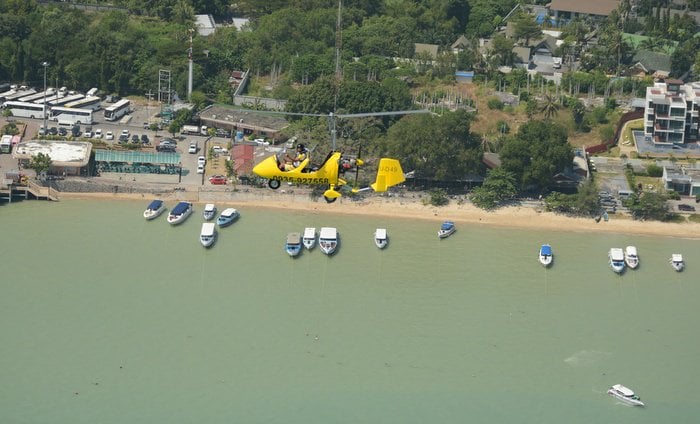Up in the air: DCA rule changes cause turbulence

PHUKET: Ongoing regulatory changes made by the Thai Department of Civil Aviation (DCA) headquarters in Bangkok have left recreational flying enthusiasts throughout the Kingdom scrambling to remain in compliance, Up In The Air has learned.
Pat James of AeroPro Management, based at Phuket AirPark in Pa Khlok, said that the administrative adjustments followed a change at the top of the DCA.
The new rules are intended to create a more streamlined and user-friendly system for private aircraft owners. Nearly all facets of aviation regulation have been revamped, including ownership and registration of aircraft as well as pilot licensing procedures.
“Unfortunately, the policy changes have put everything at a standstill until everybody adapts and changes over. Needless to say, when people get used to doing things a certain way – whether it be right or wrong – it is hard to change. Consequently, there are starting to be some delays in the DCA processing as people come in with the wrong paperwork, or submit it in the wrong order,” Pat said.
While some of the new administrative procedures should ultimately help the general aviation community [recreational flyers] in the long run, others make it more restrictive, he explained.
Pat said that he has been flying to Bangkok to meet with DCA staff on a weekly basis since early January, when he first learned that five-year permit applications were not being processed in the usual way by the agency.
One of the most notable changes is that under the new rules all recreational pilots must now be listed as the legal owner of any aircraft they fly.
Before the changes, licenced pilots – including those presenting licences issued by other nations – could be issued five-year permits by the DCA. They could then borrow and use a friend’s aircraft, typically just paying for fuel and other expenses, or work out some other kind of arrangement. But that is no longer possible under the new rules: all would-be pilots must be listed as owners, either fully or in part, of any aircraft they intend to fly.
“This has a large impact on general aviation, because as we all know not everybody can afford to buy an aircraft,” Pat said.
He said the five-year permitting system in place in Thailand is much more restrictive than procedures used in most other countries. The system is intended to ensure that all pilots are extremely-well vetted before they are allowed to take to the skies above the Kingdom, he added.
“But it also cuts very deep into the general aviation community and holds it back under a heavy thumb. They [the DCA] tends to view general aviation more from a security perspective, not as a sport,” Pat said.
GAME OF DRONES
The ongoing changes at the DCA will also affect the recreational use of small drone aircraft, which have become increasingly popular in recent years due to improvements in technology and increased affordability.
Swedish drone aircraft enthusiast and part-time Phuket resident Aron Hansson recently used drone aircraft technology to produce an impressive three-minute video entitled Phuket – From The Sky through the popular video-sharing website, Vimeo.
The video, made using a relatively low-cost drone fitted with a GoPro Hero3 and other cameras, comprised segments covering 24 locations across the island, starting with traffic at the Central Festival Phuket junction and ending at Karon Beach. The video has attracted some 40,000 plays since its release on February 6.
Mr Hansson said that he felt lucky to have finished and released the video just days before strict new regulations on drone aircraft came into effect.
He has formed a company in Sweden, AH Film, which allows him to partly finance his drone aircraft hobby, he said.
Unfortunately the sky will no longer be the limit for drone aircraft enthusiasts like Mr Hansson in Thailand, thanks to new regulation that went into effect a few weeks ago.
“To fly a drone aircraft now in now requires that you have licences and permits issued to you. I am told that the people who are responsible will be the Royal Aeronautic Sports Association of Thailand, better known as RASAT, the same people who oversee paramotoring in Thailand,” Pat said.
The rules apparently apply to all remotely-controlled aircraft, including the types that one might receive as Christmas presents, he said.

— Stephen Fein
Latest Thailand News
Follow The Thaiger on Google News:


























